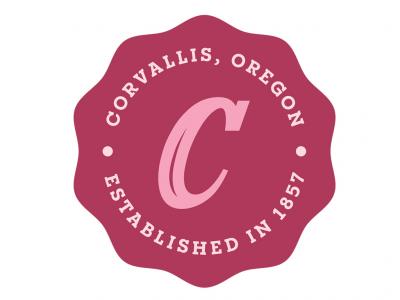Attend a City Council Meeting
Want to attend a City Council meeting?
Use the website calendar or the City Council three-month calendar to find a meeting. Agendas for meetings are published a few days in advance and will include time, location, topics, and participation instructions. Agendas can be found in the calendar listing, the City Council Meeting Materials page, or in the City Archives.
Interested in speaking to City Council?
Register in advance here: https://www.corvallisoregon.gov/publicinput.
More detailed information on the process for community comments and meeting types can be found below.
PUBLIC INPUT AT MEETINGS:
The City Council currently hears up to 22 community comments at each regular meeting and asks community members to register in advance but also offers limited opportunities to sign up at the meeting.
City staff collects up to ten (10) registrations in advance, and the deadline to register is 12:00 p.m. noon the day of a meeting. If advance registrations are full, or if community members miss the deadline or are not familiar with the process, there is an opportunity for up to twelve (12) additional commenters to sign up to speak on the night of the meeting: six (6) in-person and six (6) virtual. Community members may indicate interest in commenting by using the "raise hand" function in Zoom or signing up on the sheet in the back of Council Chambers.
While community members may contact mayorandcouncil@corvallisoregon.gov or individual Councilors by email, any written comments for a specific meeting record (meaning they are published in the packet or minutes) must be submitted through the City Council Public Input Form by 12:00 p.m. noon the day of a meeting. This ensures the required information is collected from the submitter, and Council has adequate time to read and consider the input.
More information on meeting types:
Regularly Scheduled Meetings
Council's regular meetings are the first and third Mondays of each month at 6:00 pm -- unless the Monday is a holiday in which case the meetings are held the following Tuesday. Usually, the meetings are in the Downtown Fire Station, 400 NW Harrison. A larger meeting room is scheduled when we anticipate greater than normal public interest in a subject or issue.
Purpose of Regular Meetings
Council conducts the City's business and provides direction to staff. Part of its decision-making process includes holding public hearings on a variety of issues; making budget and property-related decisions; listening to citizens; discussing master plans; appointing or approving appointments to the City's advisory Boards and Commissions; reviewing recommendations from Boards and Commissions; reviewing and updating the Land Development Code and the Comprehensive Plan; scheduling elections; and adopting legislation.
Public Hearings
Public Hearings are held during Council's regular meetings, although occasionally special meetings may be scheduled to address a particular subject. Public Hearings are held to address a variety of different areas, such as land use issues, the annual budget, the capital improvement program, special master plans, annexations, etc.
Land use public hearings may be legislative or quasi-judicial. Legislative hearings deal with the adoption, amendment, or rescission of laws. The rules of procedure are more flexible for legislative hearings than for quasi-judicial hearings. Because the Council's legislative decisions will typically have a broad application, citizen contacts and comments are expected and encouraged.
For quasi-judicial hearings, Councilors act somewhat like judges, and they must base their decisions on evidence "on the record," which other parties have had the chance to address. The rules of procedure for quasi-judicial hearings are also more like those of a court trial. Consequently, off-the-record contacts (ex parte contacts) with citizens on matters related to quasi-judicial hearings are discouraged. Quasi-judicial hearings typically involve decisions which relate to a single specific property. As the Councilors act like judges in these hearings, they must be impartial and they must base their decisions on land use criteria found in the City's Comprehensive Plan and Land Development Code.
Appeals of the Planning Commission's quasi-judicial decisions come to the City Council de novo. While the Council typically has the record from the Planning Commission before it, new testimony is taken for a new record as part of a new quasi-judicial hearing. Participation in these de novo hearings is open to everyone; it is not limited to the participants in the Planning Commission hearing. Unless 10 City-registered voters appeal a Planning Commission decision, only the people who have participated in the Planning Commission hearing may bring an appeal to the City Council.
Special Meetings
When Council's schedule is such that a time-sensitive item, such as a land use public hearing, cannot be considered at a regular meeting, then a special meeting would be held to hear, deliberate, and decide on the matter.
Work Sessions
In addition to regular meetings, Council also meets in work sessions at 4 p.m. on the Thursday following regular Council meetings. These are informal meetings scheduled to discuss subjects in depth. Typically, decisions aren't made during work sessions, but decisions may be made on a case-by-case basis as needed.
Joint Meetings or Work Sessions
The City Council also meets with other entities, usually governmental, to share information or discuss issues of interest to the parties.
Executive Sessions
The City Council meets in executive session to discuss sensitive matters or receive information. These executive sessions usually deal with real property transactions, litigation, or labor negotiations; other allowed subjects would include employment of a public officer, dismissal or disciplining of a public officer, preliminary negotiations involving matters of trade, employment performance of the chief executive officer, or negotiations regarding public investments. Although the public may not attend executive sessions, representatives of the news media may attend and, while information obtained during the session may not be printed, it may be used as background. Decisions are not made during executive sessions; a consensus may be reached, but all decisions resulting from information obtained in executive session are made during a public meeting.
